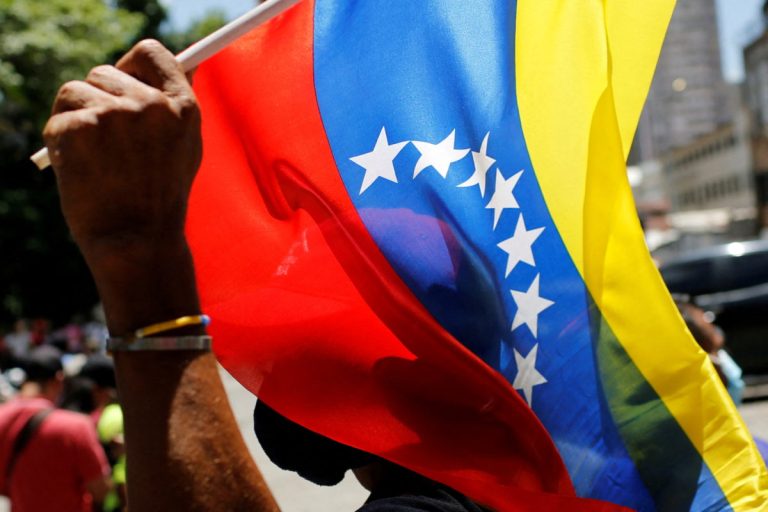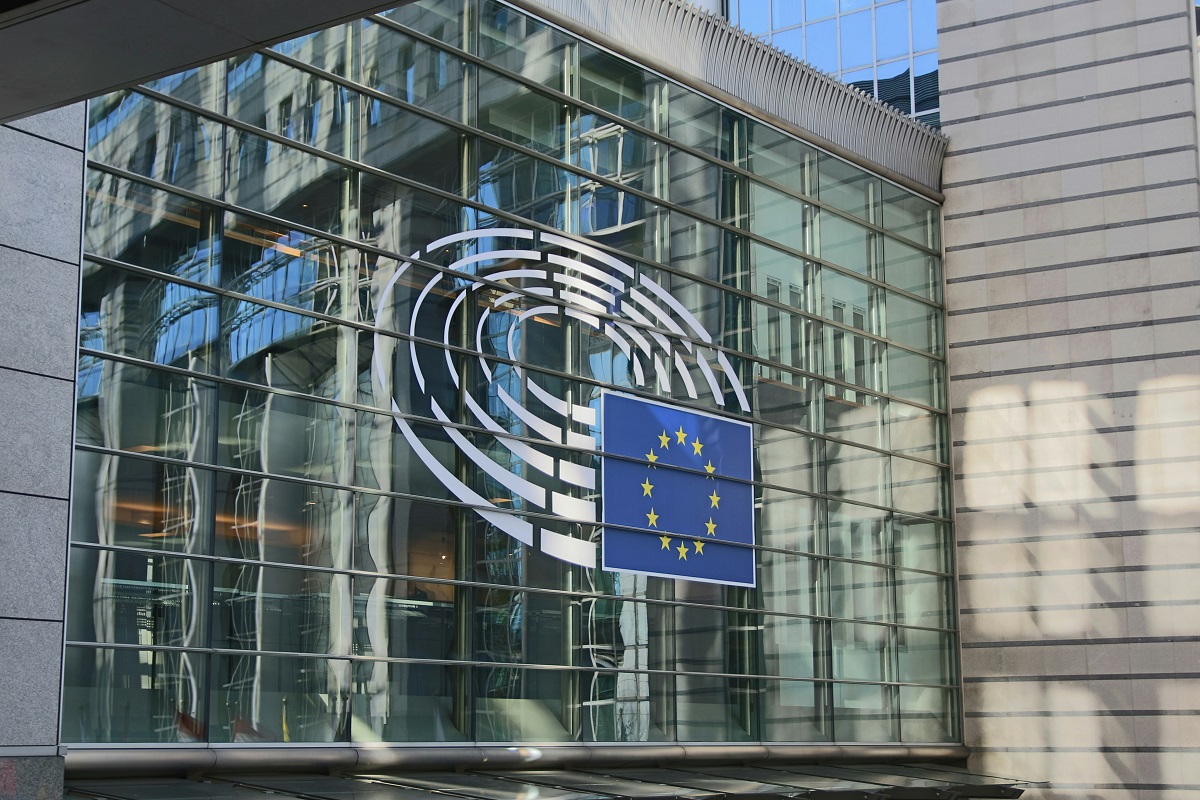
European Right strengthens after European Parliament elections, but experiences internal divisions
According to the results of the European Parliament elections, the nationalists got the biggest boost. The “moderate faction” European Conservatives and Reformists (ECR) took 71 seats, which is 2 more than in 2019. And the “radicals” from Identity and Democracy Group gained as many as 62 seats, increasing their representation by 13 seats. And this is without taking into account the fact that among the independent deputies there were 25-30 far-right. The most powerful nationalist party, Marine Le Pen’s Rassemblement National, received more than 34% in France.
In Austria, euroskeptics and opponents of Brussels liberalism from the Freedom Party took the top spot with 29%. Meanwhile, the Alternative for Germany managed to get about 16%, beating the ruling SPD with 14% and becoming the second strongest party for the first time in history. In the former GDR, the Alternative is in first place with 27%. In Belgium, the Vlaams Belang, Flemish nationalists and Euroskeptics, took 21%, forcing Belgian Prime Minister Alexander De Croo to resign due to “electoral failure”.
The worst nightmare of the European bureaucracy has come true. With the strengthening of the right-wing, Brussels is now facing a major political crisis. And ordinary Europeans are increasingly trying to get out of their own permanent crisis, into which the European liberal elite has driven the entire continent.
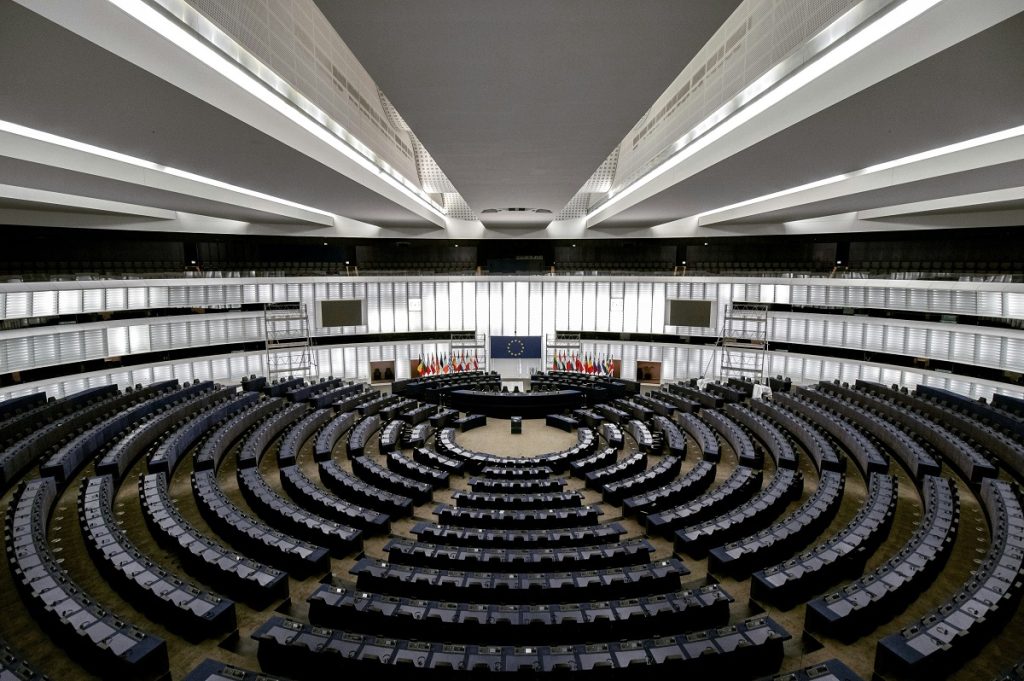
The parties of French and German leaders, Emmanuel Macron’s centrist Renaissance and Olaf Scholz’s social-democratic party, have failed in the European Parliament elections. They strengthened the far right because of their economic policies that ignore the interests of even their moderate liberal electorate. However, there are nuances that do not allow the far right to relax.
For example, in France, the victory of Marine Le Pen’s Rassemblement National forced the French president to dissolve the National Assembly and call an extraordinary parliamentary election. After that Le Pen declared that the Rassemblement National is ready to “revive France”. But now nationalists and macronists will have to coexist in the parliament and government, and the former may lose a lot from such a “symbiosis”.
In Germany, despite Alternative’s success, the conservative CDU/CSU bloc won with 30% of the vote. The bloc is on course to win the 2025 parliamentary elections and is no less liberal than the SPD.
Italian right-wing leader and Prime Minister Giorgia Meloni increased her share of the vote compared to the 2022 elections with almost 30% of the vote. And in Greece, the ruling party lost votes in the European elections, while right-wing parties strengthened their position, with the Golden Dawn heirs of the Greek Solution being the key.
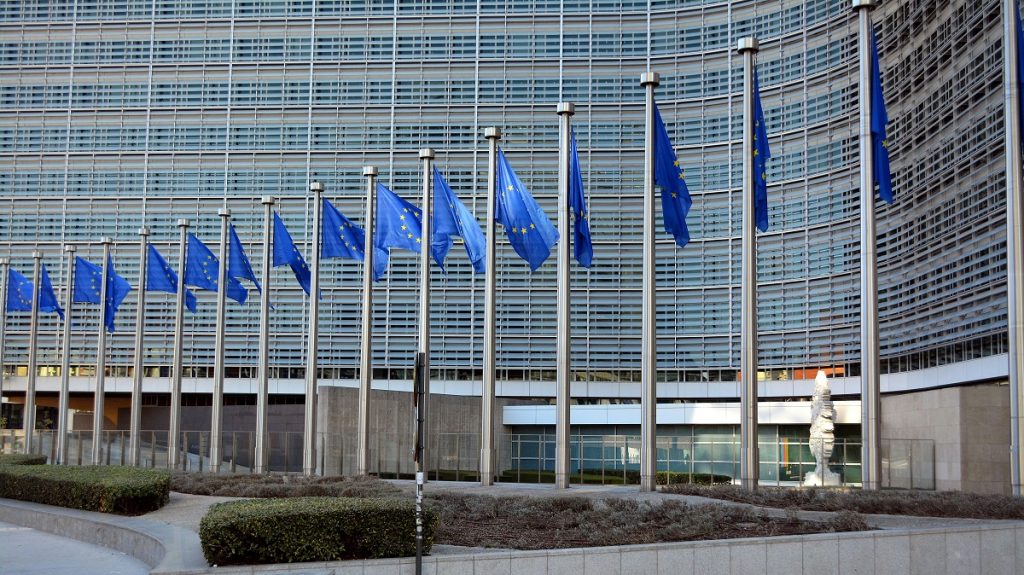
The party of Viktor Orban, the leader of all European right-wing parties in Hungary, also won, although it had its worst result in its 14 years in power. It scored 43%, and that’s about 10% less than the last election. Péter Magyar’s opposition Tisza party received about 30% of the vote, imitating, however, the same right-wing populism.
Nevertheless, the success of the right-wing will not radically change the situation in the European Parliament. European People’s Party, of which the head of the European Commission Ursula von der Leyen is a member, will continue to dominate, which means that the liberal policy of the EU will not fundamentally change. The globalist establishment has only missed a blow, but is not even knocked out yet. So, we will have to deal with a liberal and degenerating Europe for the foreseeable future, and we need to be prepared for that.
But Europe is choosing “right-wing” security over the “ultra-liberal” climate that has been one of the banners of the current global European utopia. For elites, this shift of Europe to the right is sad and disturbing. European Commission President Ursula von der Leyen has every chance to retain control of the European Parliament, but she will no longer be able to rely on a “progressive majority” as before.
At the national level, a clear picture of winners and losers usually emerges quickly. At the EU level, things are often more complicated. This is because the result of European elections is the sum of 27 national decisions, and there is no “European electorate”. In each country, citizens make decisions based primarily on national motives. However, the underlying trends are already clear, with the current ruling parties in France and Germany losing influence and gaining in Italy and Poland.
This dynamic has guided the formation of the next European Commission. The European shift to the right is unpleasant for liberals, but it does not mean that right-wing parties are coming to power in the EU. Right now, Germany and its Christian Democrats remain in power in Europe. At the EU level, they are called the European People’s Party (EPP) and are the strongest group in the European Parliament. But Ursula von der Leyen will have to deal more with the nationalists in her second term, as the forces to the left of center (Socialists, Greens and Communists) have lost their influence.
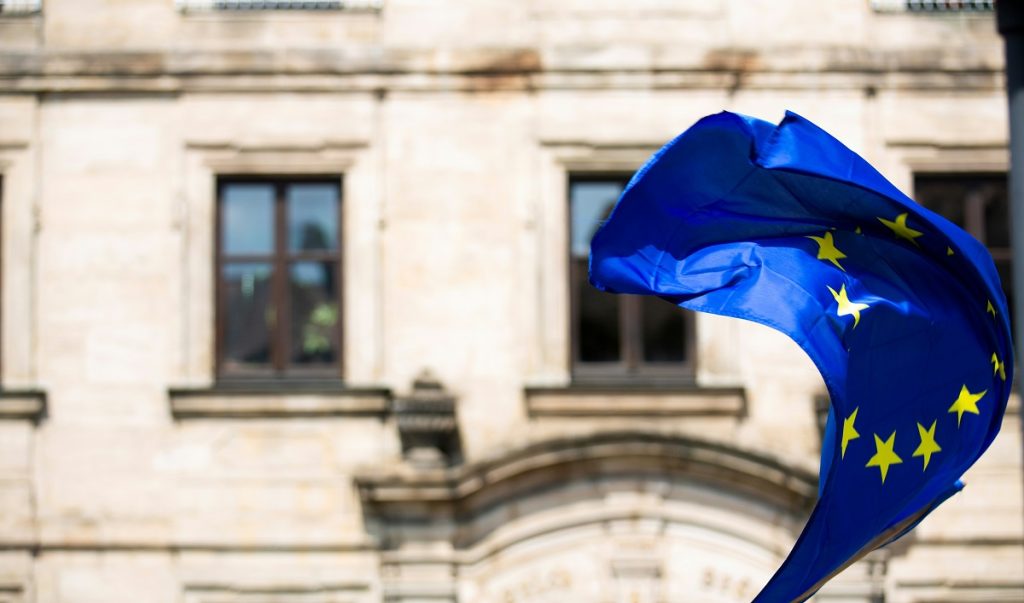
The situation reflects the major tectonic shifts that have occurred since the last European elections in 2019. They are related to the fact that Europe once again feels threatened by the war initiated by liberals, who are now reaping the dissonance of their ideology and actions. Because of the economic problems with the implementation of green technologies, climate policy remains important in terms of the liberal myth, but is no longer a top priority even for centrists, leftists and liberals. The most pressing issue now is security. Whether it is external security from Russia or China, or internal and economic security from crises. And here, one way or another, a drift to the right is inevitable, which so far has been skillfully controlled by the “right wing” of the liberal establishment, not by nationalists.
The Eurobureaucracy is not just being brave and pretending that it has managed to keep the fully centrist core in the European Parliament in the form of an alliance of Socialists and “people’s conservatives” and prevent a total victory of the right. But the Euroskeptics still won about 200 seats, which makes Ursula von der Leyen’s position precarious.
Nevertheless, the problem of the Right is its own internal split. They had two blocs that differed ideologically, and a few other parties like Alternative for Germany and Hungarian Fidesz, which were not part of any bloc. Therefore, they would not be able to co-opt their candidates to the European Commission, although formally they had the right to do so by the number of right-wing deputies in the European Parliament.
But the right-wingers have the opportunity to block many appointments, which is what they will be doing for the next 5 years. Even some systemic liberals did not want to see Ursula for a second term, because she is the one associated with the current systemic crisis of the EU. Instead of Ursula von der Leyen it was suggested to put either Mario Draghi or Roberta Metsola. Ursula von der Leyen herself was initially ready to compromise with the right for the sake of political preservation, but she risked losing the support of the “radical” liberals and Greens. However, the elites decided everything non-publicly, and von der Leyen remained in her place.
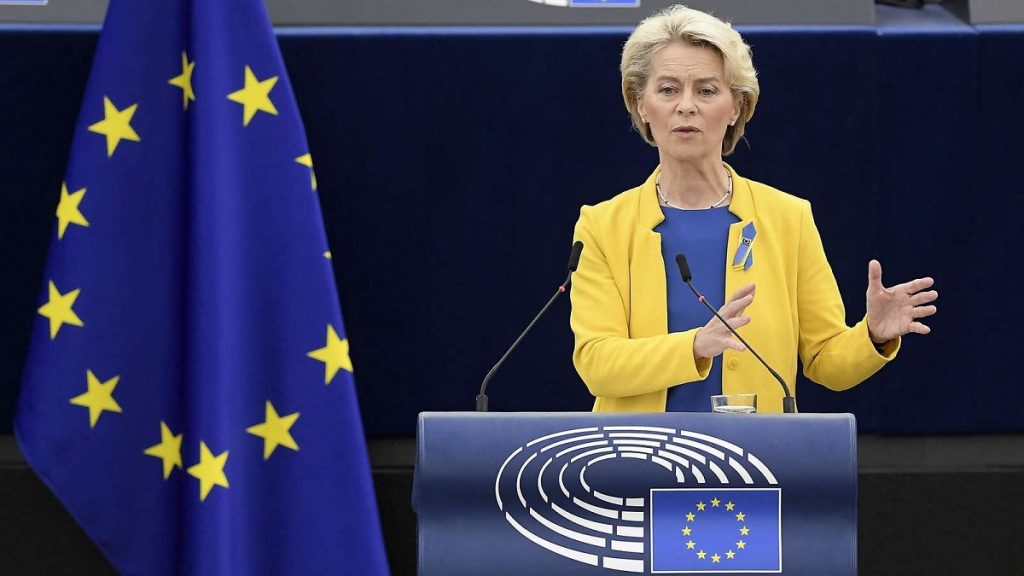
Photo by Bremen-innovativ.de
After that, Brussels was waiting for months and months of behind-the-scenes conflicts with the selection of the new composition of the European Commission, and the system was gradually heading towards a bifurcation point. And there were still elections ahead in many countries, including Austria, where Euroskeptics would also grow stronger at the national level. Brussels’ dysfunction suited them fine, because the worse things get for the self-devouring Eurobureaucracy, the easier it will be for them to destabilize the EU, which is already weakened by the crisis. But they will be able to do so only when they overcome their own turmoil, behind which, perhaps, the establishment puppeteers are also behind.
Thus, even before the elections in May, the AdG was excluded from the right-wing group Identity and Democracy in the European Parliament. The formal reason for the expulsion was the scandalous statements of Maximilian Krah, one of the AdG deputies in the European Parliament. He said that not all members of the Waffen-SS should be tried as criminals. Marine Le Pen, who was the main initiator of the exclusion, regarded the party’s failure to punish Krah for such actions as an official endorsement of this position by the AdG. According to Le Pen, the fact that her National Rally party was in the same faction with the AdG was reputationally damaging to her image and to the other members of the faction, who supported her opinion and made a collective decision to expel the AdG.
The Rassemblement National now occupies a moderate right-wing platform in France, and contacts with the AdG could have caused electoral damage. However, this was the main, but by no means the only reason for what happened.
The AdG’s close public and informal ties with Russia had a negative impact. The party’s support for Moscow on a whole range of issues, from the war in Ukraine to the EU sanctions policy. The bloc of members of the Identity and Democracy faction, which harmoniously transformed in the new convocation of the European Parliament into the Patriots of Europe, led by Marine Le Pen and Viktor Orbán, stakes on minimizing pro-Russian rhetoric, considering the Russian agenda toxic and dangerous for itself. In this light, Alternative for Germany, which has been openly pro-Russian, could no longer be in the same European faction with their parties.
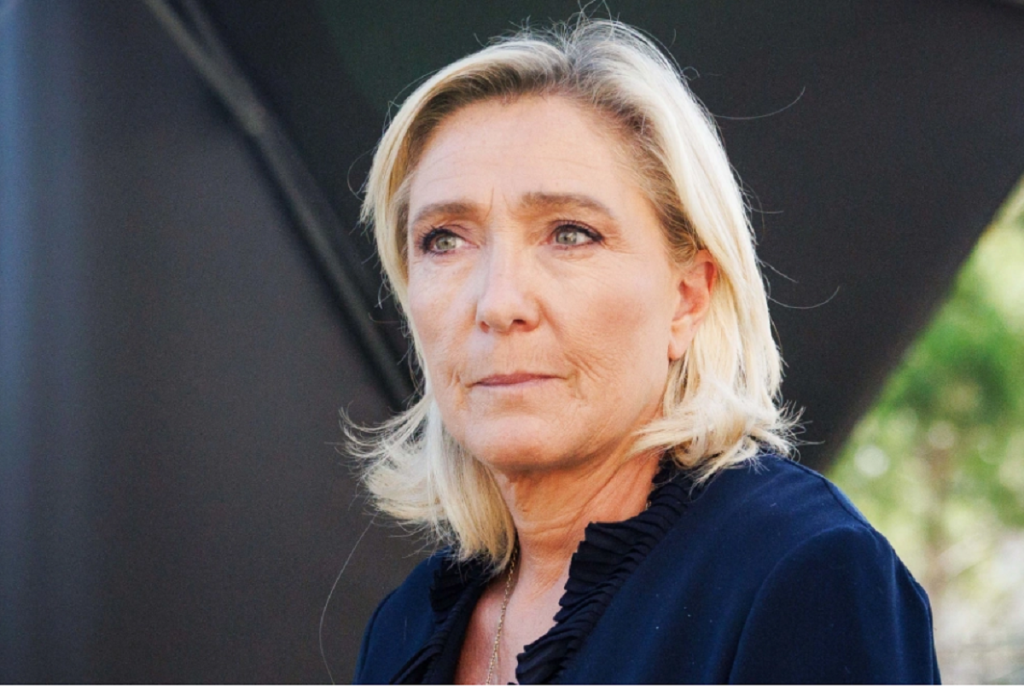
Photo by Nbcnews.com
This position was related not only to attempts to minimize the pressure on the right bloc from the EU bureaucracy, but also to the plan of the above-mentioned politicians to focus on cooperation with the United States from 2025, if Donald Trump becomes president. Strengthening ties in the U.S. in such a development automatically envisioned a more cautious approach to contacts with Russia, even for countries such as Hungary or Slovakia, and certainly less rational for the French or Germans. In addition, the reorganization of the Identity and Democracy faction in many ways implied the removal of the AdG from the faction, which should have created political grounds for new parties to join the union, associated with the growing moderation of the nationalist faction.
After the Alternative scandal and for a number of other reasons, it became possible to reformat a number of right-wing factions and the emergence of a new far-right faction, Patriots of Europe. On the one hand, many right-wingers wanted to create a “united movement,” which was linked to the convergence of their political platform at the CPAC conference in Budapest, which took place in April 2024. The new European party could include the moderate forces we mentioned above, including even Poland’s Law and Justice. But, on the other hand, leaving the Identity and Democracy faction was threatened by the Freedom Party of Austria, which demanded to return to the AdG faction. In case Marine Le Pen and the leadership of the Identity and Democracy faction would not accept the condition regarding the return of the Alternative for Germany, a new faction of the far-right was to be formed, which in addition to the Germans was planned to include the Republic Movement (Slovakia), the Revival party (Bulgaria), Our Homeland Movement (Hungary), New Hope (Poland) and a number of other parties, which were previously considered to be alienated and marginalized. In its composition it had to have at least 25 deputies from at least 7 countries, which met the condition of the European Parliament for the formation of a faction.
As a result, on July 10, Alternative established a new association Europe of Sovereign Nations, confirming the split of the right-wing into “moderate” and “radical”. This means that they are still a long way from defeating the European establishment. And here it does not even matter whether this split was caused by the intrigues of liberal officials in Brussels, or whether it was an internal squabble that came down to the egoism of the nationalists themselves.
